An M.Tech degree in Digital Electronics and Communication opens the door to a world of diverse and exciting career opportunities. Graduates in this field are highly sought after for their expertise in designing, implementing, and managing advanced communication systems and networks. In this section, we'll delve deeper into the numerous career pathways available to M.Tech graduates and provide strategies for maximizing job opportunities in the field.
Digital Design Engineer: As a digital design engineer, you'll work on designing and developing digital circuits and systems. Your role may involve creating microprocessors, microcontrollers, and other digital components for various applications, such as consumer electronics, telecommunications, and automotive.
Telecommunication Engineer: Telecommunication engineers play a critical role in managing communication networks and systems. You'll be responsible for ensuring seamless voice, data, and video transmission, and you may work on projects related to 5G networks, satellite communication, and optical fibre networks.
Embedded Systems Engineer: The world of embedded systems is vast and encompasses applications in IoT devices, medical devices, automotive systems, and more. As an embedded systems engineer, you'll design and develop embedded hardware and software solutions that enable these devices to function efficiently and securely.
RF Engineer: Radio-frequency (RF) engineers specialize in RF technology, which is essential for wireless communication systems, satellite communication, radar systems, and more. You'll design RF circuits and antennas, optimize signal performance, and ensure the reliability of wireless networks.
Signal Processing Engineer: Digital signal processing (DSP) is at the heart of audio, image, and data processing. Signal processing engineers work on algorithms and techniques to enhance signal quality, reduce noise, and extract valuable information from data. This role is crucial in fields like telecommunications, medical imaging, and multimedia processing.
Cybersecurity Analyst: With the increasing reliance on digital communication, cybersecurity has become paramount. Cybersecurity analysts are responsible for protecting communication networks from cyber threats and ensuring the confidentiality, integrity, and availability of data. You'll conduct vulnerability assessments, implement security measures, and monitor network security.
Research Scientist: For those inclined towards research and innovation, a career as a research scientist can be highly rewarding. You can work in universities, research organizations, or corporate research and development (R&D) departments, contributing to cutting-edge discoveries and advancements in digital electronics and communication technology.
Project Manager: Project managers in the field oversee the planning, execution, and successful completion of projects related to digital electronics and communication. Your role involves managing budgets, resources, and timelines, ensuring that projects align with organizational goals.
Consultant: As a consultant, you'll leverage your expertise to provide valuable advice to organizations seeking to optimize their communication infrastructure and technology. Consultants often work independently or with consulting firms, helping clients make informed decisions and overcome challenges.
Entrepreneur: Entrepreneurial graduates can embark on the journey of starting their tech companies. With innovative ideas and a solid understanding of digital electronics and communication, you can develop products and solutions that address industry challenges or meet specific market needs.
Academician: For those passionate about teaching and research, pursuing a career in academia is an excellent choice. Academic positions at universities and colleges allow you to impart knowledge to the next generation of engineers while conducting research in your area of interest.
Data Scientist: The ability to analyze and derive insights from communication data is increasingly valuable. Data scientists in this field work on processing, interpreting, and visualizing data to make informed decisions, optimize network performance, and enhance user experiences.
To maximize your job opportunities and excel in your career after completing an M.Tech in Digital Electronics and Communication, consider the following strategies:
Continuous Learning: Stay updated with the latest advancements in digital electronics and communication technologies. Attend workshops, webinars, and conferences to enhance your knowledge and skills.
Certifications: Earning industry-recognized certifications can boost your credibility and employability. Consider certifications in areas like network security, wireless communication, or project management, depending on your career goals.
Networking: Build a strong professional network by connecting with professors, classmates, industry professionals, and alumni. Networking can lead to job referrals, mentorship opportunities, and collaborations on projects.
Internships and Projects: During your M.Tech program, participate in internships and projects that provide practical experience in your chosen field. Real-world projects not only enhance your skills but also make your resume more appealing to employers.
Soft Skills: Develop essential soft skills such as communication, teamwork, problem-solving, and adaptability. These skills are highly valued by employers and can set you apart from other candidates.
Research and Publications: If you aspire to work in academia or research, focus on publishing your research findings in reputed journals and presenting them at conferences. Research experience enhances your credibility as a subject matter expert.
Online Presence: Create a professional online presence by maintaining an updated LinkedIn profile and showcasing your skills and achievements. Many employers use social media and professional networks to identify potential candidates.
Industry Exposure: If possible, gain exposure to different sectors and industries. Digital electronics and communication skills are transferable across various domains, and versatility can open up diverse career opportunities.
Job Portals and Networking Platforms: Explore job portals and industry-specific networking platforms to search for job openings and connect with recruiters. Many companies actively recruit through online platforms.
Personal Branding: Develop a personal brand that reflects your expertise and professional identity. Share your knowledge through blog posts, articles, or presentations to establish yourself as an authority in your field.
Prepare for Interviews: Brush up on your interview skills, especially technical interviews. Practice answering common interview questions and be ready to demonstrate your problem-solving abilities.
Stay Inquisitive: Maintain a curious mindset and a willingness to learn. Be open to new challenges and emerging technologies in the digital electronics and communication landscape.
Location Flexibility: Consider job opportunities in different regions or countries. Some areas may have a higher demand for digital electronics and communication professionals, offering attractive career prospects.
Pursuing an M.Tech in Digital Electronics and Communication offers a wide range of career possibilities in an ever-evolving field. By combining a strong educational foundation with strategic career-building efforts, you can maximize your job opportunities, achieve professional success, and contribute to the advancements in digital communication technology. Whether you choose to work in industry, academia, research, or entrepreneurship, your expertise in this field will continue to be in high demand, shaping the future of communication technology.
 2 Years
2 Years
 Post Graduate
Post Graduate
 Engineering
Engineering
 Full Time
Full Time



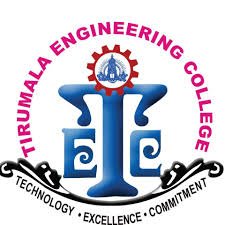


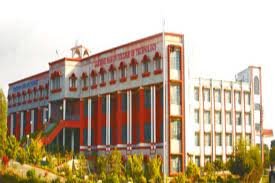




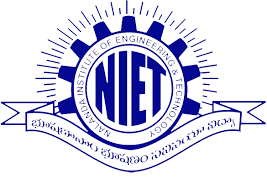

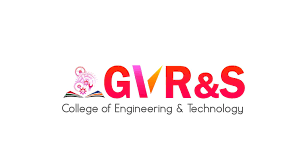

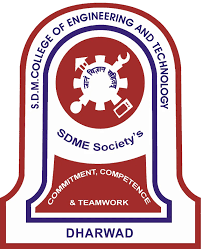





 back
back

